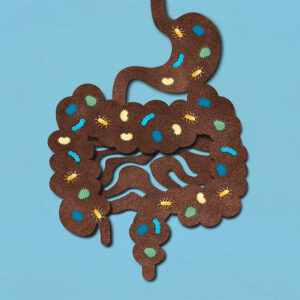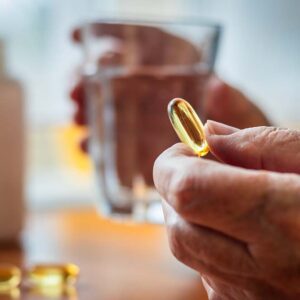
Hidden Harm of Daylight Savings
Daylight Saving Time is no big deal. It’s just an hour… it can’t affect that much. Right?
WRONG.
The truth is whether we’re “springing forth” or “falling back,” daylight saving time (DST) can change your life in small but harmful ways.
In fact, research reveals one common side effect that can negatively affect EVERY aspect of your life.
DST doesn’t just alter the time on our clocks.
Scientists warn this seemingly small change can impact on your overall health and mood in a BIG way.
Most of us are aware by now that “springing forward” is linked to an increased risk of heart attack, stroke, and accidents.
But when DST begins, there are also more depressive episodes, suicides, and hospital visits related to anxiety and depression.
You see, when the time shifts forward by one hour in the spring, the darker mornings can cause your melatonin and serotonin levels to drop—a hormone that’s linked to mood.
And folks who get up early may miss out on exposure to natural morning light, which is vital for keeping our mood balanced.
The start of DST gets all the attention. But on the flipside, the “fall back”—the return to standard time—is treated as if it’s no big deal.
The truth is, regardless of whether DST is starting or ending, it can STILL mess with your mood. And that can have an impact on EVERY aspect of your life.
To begin with, an alteration in your sleeping pattern, even by one hour, isn’t as insignificant as it sounds.
BOTH “gaining” or “losing” an hour can leave you feeling groggy and out of sorts as it messes with your cortisol (“stress” hormone), serotonin (“feel good” hormone), and melatonin (“sleep” hormone) levels.
Even worse, bumping the clock forward or backward wreaks HAVOC with your circadian rhythms. These biological clocks guide your normal wake sleep cycle and other bodily functions.
So, the misalignment caused by a shifting clock… backward or forwards… can affect your sleep cycle, mood, and general well-being.
For example, many folks have trouble going to sleep and staying asleep after the time changes, which can last for weeks afterward. And, of course, insomnia messes with your mood, making you feel short-tempered, anxious, and depressed.
When we return to standard time in the fall, you may already be battling mood issues if you have seasonal affective disorder (SAD). And this time shift can knock your brain chemicals even further out of balance, worsening depression.
The good news is that most of these risks drop again after a few weeks as you adjust to the new time.
You can take a few simple steps to ease the adjustment back to standard time this year and reduce your risk of mood and other problems.
Under federal law, DST ends at 2 AM on the first Sunday in November. This year, that makes it fall on November 5th.
- Start preparing for the time change four days before by shifting your bed and wake time 15 minutes forward each night. For example, if you typically go to bed at 10 PM and wake up at 6 AM, then four days before, you’ll go to bed at 10:15 and wake up at 6.15. Then, three days before, you turn in at 10:30 and wake up at 6:30, and so on. Then, on November 5th you go to bed at 11 PM but wake up at your usual 6 AM. This will ease the transition and help your body adjust to the new time once it strikes.
- After the change, you may still feel sleepy an hour earlier than usual and hungrier an hour before your normal meal times. But stick to your regular schedule to help your body adjust sooner and avoid major mood problems.
- After the change, try stepping outside daily when the sun rises, exposing yourself to 15 to 20 minutes of morning sunlight. And try heading out again before sunset to get as much daylight exposure as possible. This will help fight off fall sleepiness and reset your circadian rhythms.
- Surprisingly, recent research finds that prebiotics can help people adjust to a new time schedule. So, if you aren’t taking one, consider starting now.
- If you are battling insomnia after the clock shifts, a melatonin supplement could help you get your sleep schedule back on track.
And another thing…
Here’s what else we’ve covered this week in Living Well Daily…
Common Food Additive THREATENS Your Heart
Scientists say a hidden ingredient found in the majority of processed foods is putting our HEARTS in danger.
TAME Your Irregular Heartbeat with This FIX
What causes atrial fibrillation has long been a mystery. But now, a new study sheds some light on the underlying cause (and a FIX!).
20-Minute Trick SLASHES Depression Risk
New research reveals THIS 20-minute trick can SLASH your depression risk. And, even better, it couldn’t be easier to do.
“Magical Mineral” Trick SLASHES Heart Risk
Painful and dangerous peripheral artery Disease, or PAD, affects 1 in 20 Americans over 50. But new research revealed a surprising way to SLASH your risk.
Beat BACK the Fall Blues (No Drugs Required!)
Fall might sound picture-perfect, but for many, the new season ushers in feelings of melancholy. But there are proactive ways to fend off the fall blues. And it doesn’t require turning to Big Pharma’s risky (often ineffective) antidepressants.
Common Meds Send SUDDEN Heart Attack Risk Soaring
Warning issued for diabetics. Startling new research reveals some common drugs could raise the risk of a sudden heart attack.
SLASH Stomach Cancer Risk 70% with ONE Change
Researchers identified an affordable natural solution that could reduce the risk of stomach cancer by up to 70% in high-risk individuals.
P.S. Hit the “reset button” for better sleep, mood, and more with this belly secret!
Sources:
“Local Time FAQs: Daylight saving time rules, exceptions and legislation. Time zones, borders, abbreviations and relationship to U.S. postal zip codes,” National Institute of Standards and Technology, Physical Measurement Laboratory, NIST. gov
Written By Dr. Scott Olson, ND
Nearly 25 years ago, failed mainstream medical treatments left Dr. Olson in constant pain – and his health in ruins. And that’s when he did something REVOLUTIONARY. He began his career in medicine – and dedicated his life to uncovering the true, underlying causes of disease.
Through his innovative medical practices in Tennessee and Colorado, Dr. Olson has helped cure countless seniors from across America of arthritis… heart disease… diabetes… and even cancer. All without risky prescription drugs or painful surgeries.
View More Free Articles
MAILBAG: Decoding Chest Pain and Breathlessness During Activity
“I’ve been having chest pain and shortness of breath when I’m active. Could this be a sign of a heart problem? What tests should I undergo to determine if there’s an issue?” -Paul Hi Paul, Regardless of past heart history, I always advise folks to seek medical help immediately if they experience concerning symptoms, including...
The Surprising Key to SURVIVING a Stroke
Imagine you’re going about your day when, suddenly, your world turns upside down. Your vision blurs, your speech slurs, and you feel a weakness in your arm. You’re having a stroke. It’s a terrifying experience that far too many of us have faced. And if you’re lucky enough to survive, the fear of another stroke...
The Deadly Truth About Sleep Apnea REVEALED
Where do you put sleep on your priorities list? It should rank pretty high for everyone, but if you have obstructive sleep apnea (OSA), it’s time to make it one of your TOP priorities. After all, the alarming results of the latest OSA research make it clear that quality sleep is truly a matter of...
Mistakes that Make Seasonal Allergies WORSE
If you suffer from seasonal allergies, you know how miserable they can make you feel. Common irritants, such as mold spores, dust mites, pet dander, air pollution, and strong odors, can make your symptoms go from bad to worse. You can avoid some of these triggers, and you have no control over others. Either way,...
The Hidden Dangers of Fried Foods
It’s no wonder French fries are so popular. They’re crispy, salty, and oh-so-satisfying. As a matter of fact, as I wrote the words “crispy” and “salty” just now, my mouth watered. I’m only human, after all. But brace yourself—because what I’m about to share will make you think twice before diving into your next serving...
Losing Your Locks? The SURPRISING Solution
There’s no way to sugarcoat it. Losing your hair sucks. The hit to your self-esteem is no joke. You might even find yourself avoiding mirrors and hoarding hats. The treatment options are limited, often come with a laundry list of side effects, and deliver results that are about as predictable as a coin flip. It’s...
REAL Drug-Free Back Pain Relief
Recently, I’ve had several exasperated people ask me, “Is back pain something I just have to live with?” I battled chronic back pain for years, so I completely understand why some folks feel so hopeless about finding relief. In fact, I used to think I was doomed to a life of pain and limitations, too....
Mailbag: When to Worry About Memory Lapses
“I’ve been experiencing some memory lapses recently, and I’m worried it might be early signs of Alzheimer’s disease. My mother also had it. What symptoms should I look out for?” – Ann Hi Ann, It’s important to recognize that some degree of memory loss is a normal part of life. Our brains constantly process and...
The Unforeseen Link Between Your Gut and Your Waistline
As the weather warms up and summer approaches, many of us start thinking about shedding those extra pounds… We dust off our gym memberships, stock up on salad greens, and vow to finally fit into those shorts from last year. But what if I told you that the key to achieving a healthy weight might...
Defy Aging with the Sunshine Vitamin
If there’s one thing you absolutely must do for your health, it’s to maintain healthy vitamin D levels. I can’t stress this enough. And if you think vitamin D is only good for beefing up your bones, think again. Because while vitamin D is crucial for maintaining healthy bones, recent research has revealed that this...









